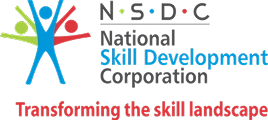Course Design By
Nasscom & Wipro
Global Recognition: ISTQB is globally recognized, expanding your career prospects worldwide.
Skill Enhancement: Gain in-depth knowledge of software testing practices.
Career Advancement: Open doors to high-paying positions and better job opportunities.
Industry Standard: Many employers seek ISTQB-certified professionals for quality testing.
Professional Credibility: Establish yourself as a trusted resource in the field.
Foundation Level: This entry-level certification is suitable for newcomers to software testing. It covers the fundamentals of software testing and prepares you for more advanced certifications.
Advanced Level: The advanced level certification is designed for experienced testers and covers in-depth topics such as test management, test analysis, and test design.
Expert Level: Expert-level certifications focus on specific areas of software testing, offering specialization in various aspects of testing.
Agile Tester Extension: This extension certification is designed for testers working in Agile environments. It covers Agile testing practices and principles.
Performance Testing: As the name suggests, this certification focuses on performance testing, including load testing and stress testing.
Mobile Application Testing: With the growing importance of mobile applications, this certification caters to professionals involved in testing mobile apps.
Data Handling Skills: Proficiency in structured and unstructured data across diverse business settings.
Informed Decision-Making: Effective data utilization for informed strategic decisions.
Comprehensive Skill Set: Mastery of tools, algorithms, data modeling, and in-depth data analysis.
Diverse Learning: Covering statistics, computer science, data analytics, and programming languages.
Advanced Topics: Exploring big data technologies, machine learning, AI, and deep learning.
Foundation Level: INR 5,000 - INR 7,000
Advanced Level: INR 15,000 - INR 20,000
Expert Level: INR 30,000 - INR 40,000
Extensions: INR 10,000 - INR 15,000
Training Courses: INR 10,000 - INR 25,000, depending on the level and duration.
Study Materials: Official materials cost INR 2,000 - INR 5,000.
Retake Fees: Applicable if you don't pass the exam on your first attempt.
Time and Effort: Recognize the value of the time and effort invested in preparation.
IT Sector: IBM, Microsoft, Google, Infosys, and more.
Healthcare and Medical Sector: High demand for data professionals.
Banking & Finance: Utilized for risk assessment, fraud detection, and insights.
Transportation: Optimizing routes, logistics, and services.
Travel Industry: Enhancing customer experiences and personalization.
eCommerce: Improving user experiences and boosting sales.
Media & Entertainment: Enhancing content recommendation and user engagement.
Non-Profit Industries: Driving social impact and optimizing operations.
Insurance Sector: Analyzing risks, setting premiums, and predicting claims.
Experience: Your level of experience in software testing plays a vital role in deciding which certification to pursue. If you are new to testing, start with the Foundation Level.
Career Goals: Determine your career goals and which certification aligns with your desired job role and responsibilities.
Skillset: Assess your skills and expertise. Choose a certification that challenges you and allows you to grow in your area of interest.
Job Requirements: Some employers may specify certain ISTQB certifications as job requirements, so check the job market for relevant certifications.
Training: Consider whether you will take advantage of training courses, as they can influence your choice.
Software Tester / QA Tester: As a software tester, you will be responsible for analyzing software, identifying defects, and ensuring that it meets quality standards.
Test Engineer: Test engineers focus on creating and executing test plans and strategies to verify software functionality. They also develop automated test scripts, evaluate test results, and provide feedback for quality improvements.
Quality Assurance Analyst: Quality assurance analysts are responsible for monitoring and maintaining the quality of software products. They review requirements, design test plans, execute test cases, and report defects to ensure that the software aligns with specified criteria.
Automation Test Engineer: Automation test engineers use automation tools and scripting languages to create automated test scripts. They conduct performance testing, regression testing, and stress testing to enhance the efficiency and accuracy of the testing process.
Test Lead / Test Manager: Test leads or managers oversee the testing process, including test planning, resource allocation, and test execution. They also manage the testing team, track progress, and report test results to stakeholders.
Test Consultant: Test consultants offer their expertise to various organizations, helping them improve their software testing processes. They may assess testing strategies, recommend improvements, and provide guidance on best practices.
Test Architect: Test architects design the overall testing architecture and framework for projects. They define test strategy, choose testing tools, and provide technical leadership for complex testing solutions.
Performance Test Engineer: Performance test engineers specialize in evaluating how software applications perform under different conditions, such as load, stress, and scalability testing. They identify performance bottlenecks and suggest optimizations.
we train you to get hired.

By registering here, I agree to Croma Campus Terms & Conditions and Privacy Policy
+ More Lessons
Course Design By

Nasscom & Wipro
Course Offered By

Croma Campus

Stories
success
inspiration


career upgrad


career upgrad


career upgrad


career upgrad
19-Jul-2025*
14-Jul-2025*
16-Jul-2025*
19-Jul-2025*
14-Jul-2025*
16-Jul-2025*

You will get certificate after
completion of program

You will get certificate after
completion of program

You will get certificate after
completion of program
in Collaboration with






Empowering Learning Through Real Experiences and Innovation

we train you to get hired.

Phone (For Voice Call):
+91-971 152 6942WhatsApp (For Call & Chat):
+91-971 152 6942Get a peek through the entire curriculum designed that ensures Placement Guidance
Course Design By


Course Offered By

Ready to streamline Your Process? Submit Your batch request today!
Croma Campus offers comprehensive ISTQB Certification training with expert guidance and hands-on experience, ensuring you are job-ready.
Upon course completion, you'll have proficiency in software testing, quality assurance, and ISTQB best practices, setting you up for a successful testing career.
No, there are no specific prerequisites for joining our ISTQB Certification classes. We welcome learners from various backgrounds.
Your earning potential is significant, dependent on your skill level and location.
Yes, we provide placement support to help you secure a job and kick-start your testing career in Pune.

FOR QUERIES, FEEDBACK OR ASSISTANCE
Best of support with us
For Voice Call
+91-971 152 6942For Whatsapp Call & Chat
+91-9711526942